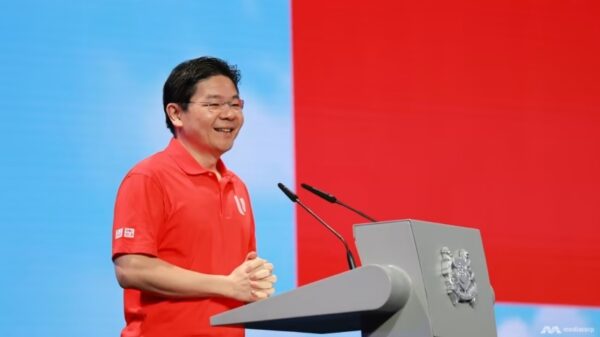
Build-to-Order (BTO) flats remain affordable, with flat prices moving in tandem with incomes, said Deputy Prime Minister Lawrence Wong on Monday (May 1).
Speaking during the May Day Rally, Mr Wong said: “When you think about affordability, please don’t just look at the headline price of the BTO flat; also consider how the price relates to income, as well as the proportion of income that’s needed to service the housing loan.”
The typical household currently uses less than 25 per cent of their income to service their home loan, like in 1980, he said in his speech.
In 1980, the price of a four-room BTO flat in a new town was about S$40,000 (US$30,000), and the median household income was around S$900.
Currently, the price of a similar flat in a non-mature estate like Bukit Batok costs S$350,000 – prices have risen by nearly 10 times since 1980, said Mr Wong, who is also Finance Minister.
“But the median household income has risen 10 times too, from S$900 in 1980 to S$9,000 today. So BTO flat prices have in fact moved in tandem with incomes,” said Mr Wong.
This comparison also does not include housing grants of up to S$80,000 for first-time buyers, he added.
“So if you do a proper comparison, a fair comparison, BTO flats remain affordable,” said the Deputy Prime Minister.
“The vast majority of our first-time homebuyers today service their housing loans through their CPF (Central Provident Fund) contributions, with very little or even no out-of-pocket cash,” he added.
The main problem Singapore is facing today is insufficient BTO flats due to supply delays because of the COVID-19 pandemic, said Mr Wong.
“We are steadily catching up on the backlog – ramping up supply and building more BTO flats,” he added, noting that 20,000 flats will be completed this year.
He said Singapore has created the “world’s best public housing”.
“Affordable and accessible public housing – like access to first-rate education and healthcare – will always be a key part of our social compact in Singapore,” Mr Wong added.
Resale prices of Housing and Development Board (HDB) rose by 1 per cent in the first quarter of 2023 – the smallest quarterly rise in the last 10 quarters.
Prices of private homes rose by 3.3 per cent in the first quarter of this year, higher than the 0.4 per cent increase in the preceding quarter.
Singapore rolled out another round of property cooling measures last week – its third since December 2021.
Foreigners buying any residential property in Singapore will now have to pay an additional buyer’s stamp duty (ABSD) of 60 per cent – doubled from 30 per cent.
Singaporeans buying their second residential property will pay an ABSD rate of 20 per cent, up from 17 per cent, while those buying their third and subsequent residential property will have to pay an increased rate of 30 per cent, up from 25 per cent.
Singaporeans buying their first property will not have to pay ABSD.
The rate of 30 per cent also applies to permanent residents buying their second residential property. PRs buying their third and subsequent residential property will pay an ABSD of 35 per cent, up from 30 per cent.
Minister for National Development Desmond Lee said last week that the increased rates were a pre-emptive step to dampen local and foreign investment demand amid renewed interest in residential properties.